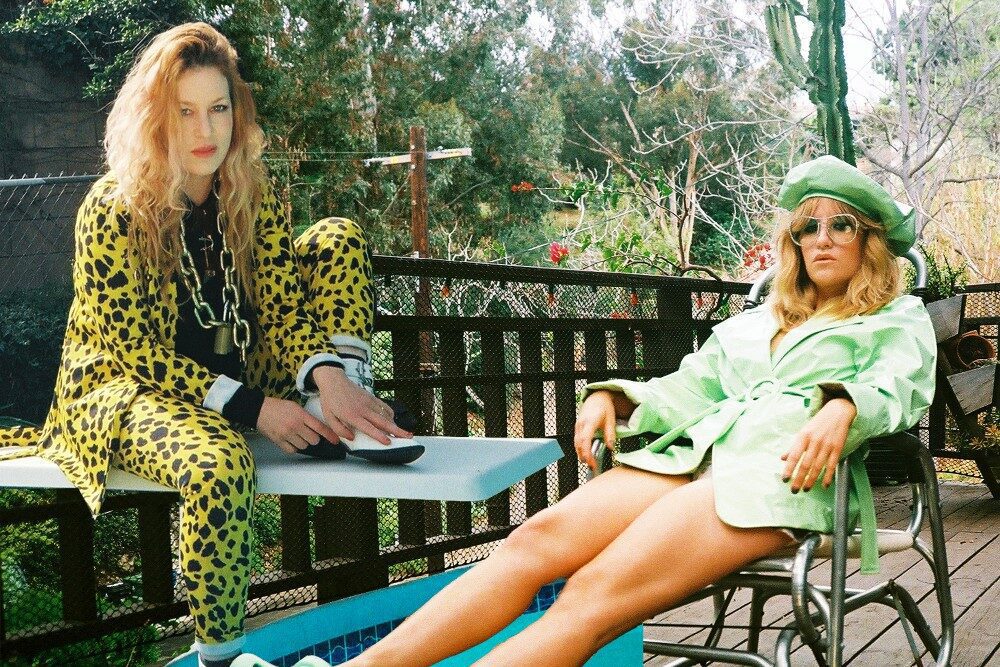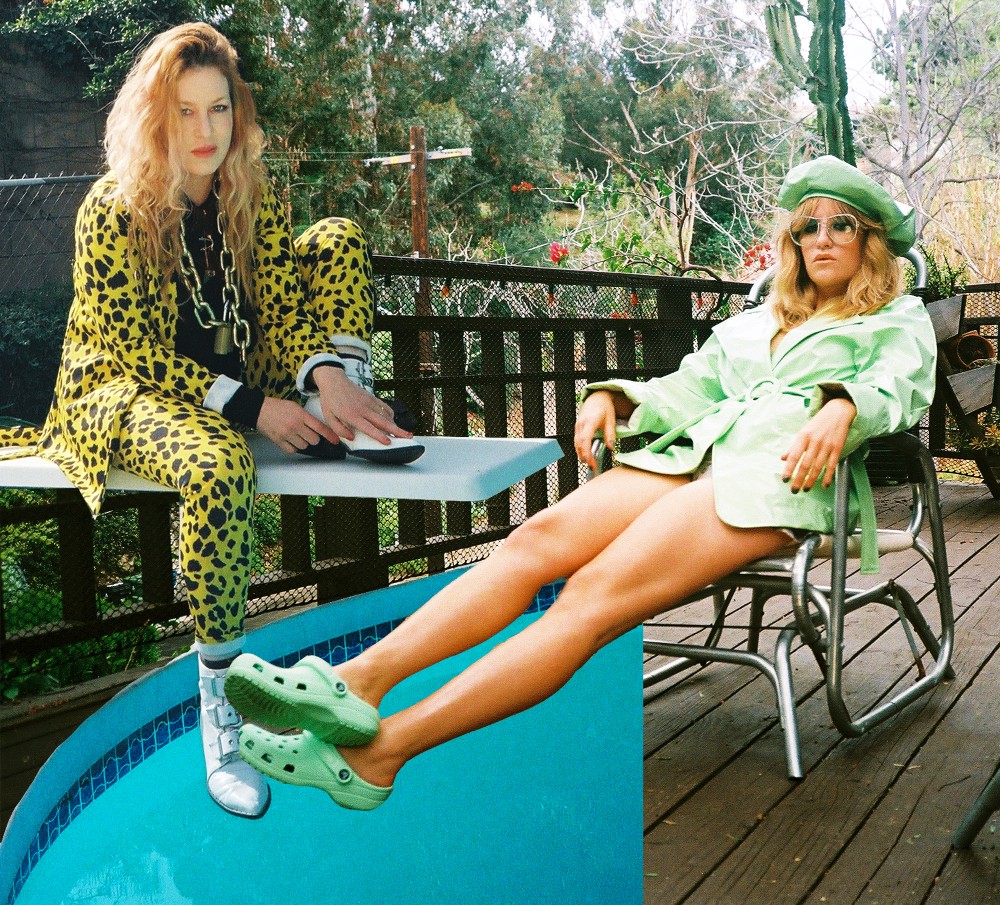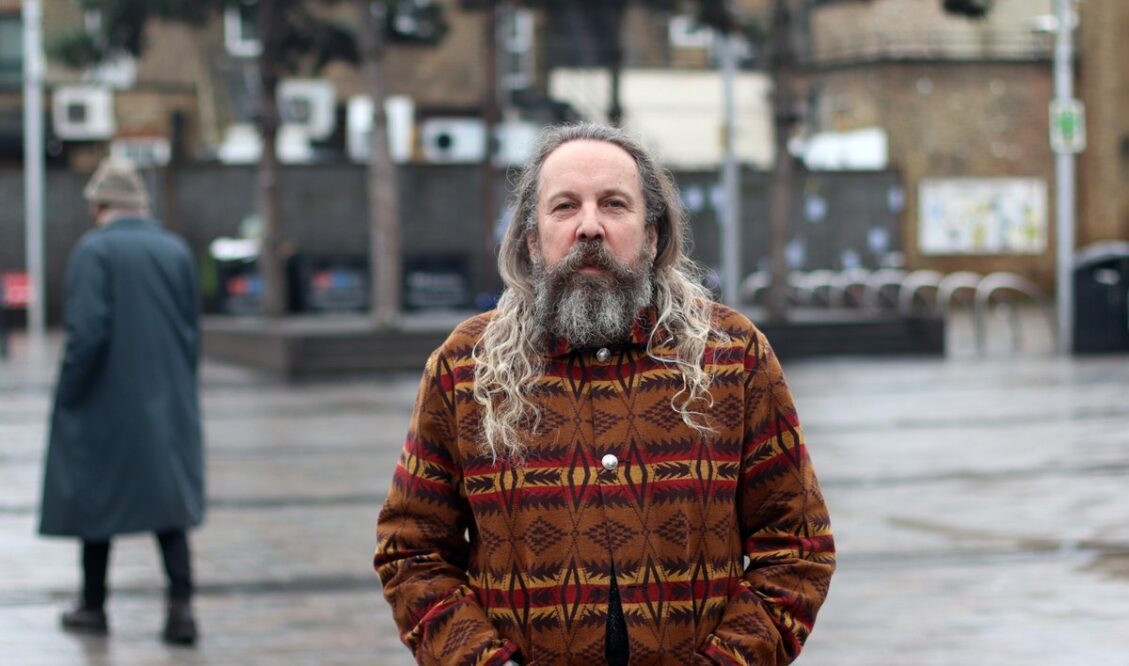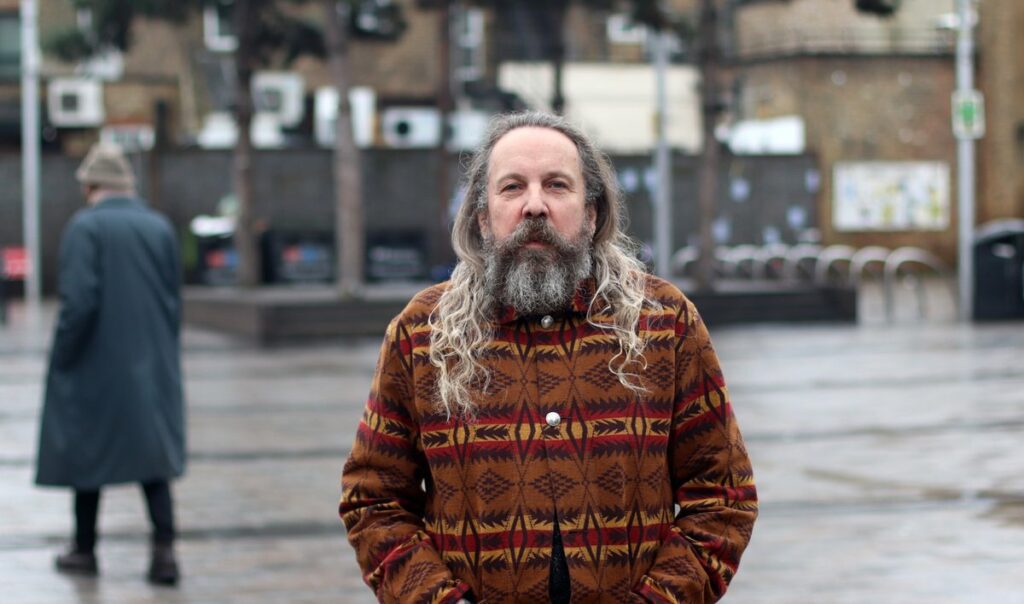

The musical marriage between Lindsey Troy and Julie Edward began a decade ago when they committed their respective rock ‘n’ roll talents to Deap Vally. Their long friendship and professional partnership has been creatively fertile in the last two years, culminating in the release of their third album, Marriage, released November 19 via Cooking Vinyl. It follows two EPs released earlier this year: in February, they dropped the Digital Dream EP and in June, American Cockroach.
Both the EPs and Marriage are the products of the “collaboration series” the duo began after releasing their second album Femejism in 2016, which was produced by Nick Zinner of Yeah Yeah Yeahs notoriety.
“After Femejism came out, we did quite a bit of touring in the US,” says Troy. “We were on the road a lot, and then, once we finally got time to do some more writing, we were trying to figure out how to shake up the writing process and make it exciting for us again, because we’d spent so much one-on-one time with each other.”
Reaching out to potential collaborators – something that happens often in EDM and hip-hop, but not so much in the rock ‘n’ roll world – proved to do just that. One of their first acts they got in touch with was The Flaming Lips, with some unexpected results.
“That ended up turning into a full record!” says Troy. “We released that first, but originally that was meant to be a song as part of our collaboration series.” The Deap Lips album, a scuzzy, hazy-glam, psyched-out antidote to the pandemic blues, whet their appetites for more creative partnerships. The possibilities open to them as they expanded beyond their two-piece lineup felt suddenly real and immediate, as evidenced by the bleepy, trippy, Wayne Coyne-flavoured track “The Pusher.”
“The beauty of collaborating is that you can always take something new away from witnessing and participating in someone else’s approach,” says Edwards. “Although we had many of our collaborations already in progress when we wrote with the Lips, it was inspiring to see their seamless blend of practical work ethic with spontaneous inspiration. Definitely recording at the Flaming Lips studio in Oklahoma was a true highlight so far.”
“So far” refers to the ten years since Edwards and Troy formed Deap Vally in 2011. When they met in Silver Lake, Los Angeles, Edwards had been a vocalist, drummer, and keyboardist for LA-band The Pity Party alongside Marc Smollin since 2005, which toured and released EPs until 2012. Meanwhile, San Diego-born singer-guitarist Troy had (child-prodigy style) teamed up with her sister Anna to form The Troys, recording their debut album for Elektra Records in 2002 but never releasing it (Lindsey was just 15 at the time, and Elektra closed shop soon afterwards). The sisters released their solo projects in 2006: Anna’s Ain’t No Man LP; Lindsey’s Bruises EP months later. Lindsey had been doing her own solo thing until meeting Edwards, in the last place you’d expect given their hard-hitting sound.
“Lindsey actually came into my shop, The Little Knittery, and I taught her how to crochet and knit, and that’s how we met,” says Edwards. “At this point, there’s pretty much no downtime to make stuff, but we used to knit compulsively on the road and sell our handknits at shows.”
They shared more in common than a love of crochet. The two women spoke the same language when it came to rock, bonding over a love of Led Zeppelin.
Their own raw, noodling, punk-garage-blues rock relies purely on guitar, drums and frank, feminist lyrics delivered in a full-throated holler. The duo signed to Island Records in 2012 on the strength of their first single, “Gonna Make My Own Money;” the raucous, frenetic drums teamed with fuzzy, savage guitar riffs and a Karen O-style guttural-yet-melodic moan was undeniably a anthemic feminist cry in the spirit of Bikini Kill, L7 and Babes In Toyland. It would appear on their 2013 EP Get Deap! alongside three additional tracks that Spin declared “a burst of self-reliant aggression.”
“It’s unapologetic, heavy and groovy,” the duo stated in their trailer for the EP, in which the furious, fabulous “End Of The World” soundtracks footage of Troy and Edwards looking suitably rock ‘n’ roll with their big hair, swigging hard liquor straight from the bottle and ferociously swinging their instruments about on stage. That was but a sampling of the 11-track debut to come: Sistrionix, recorded in LA with producer Lars Stalfors of The Mars Volta, dropped in June of that same year. With instant acclaim came festival spots at Latitude, Leeds and Reading Festivals in the UK, and tours with The Vaccines, Muse, Wolf Mother, Marilyn Manson and Red Hot Chili Peppers.
The same album spawned one of my favourite Deap Valley bangers: “Baby I Call Hell,” a hot, hollering, anthemic rock beast in which Troy demands of her lover, “Are you gonna please me, like you swore you would, or is it just to tease me? Better treat this woman good!”
Femejism followed in 2016, and 2017 saw the duo touring with Blondie and Garbage on the Rage and Rapture Tour. But their marriage was feeling frayed at the edges and the creative spark had been dulled by domestic demands (both Troy and Edwards have very young children). The thrill of releasing music as Deap Lips only confirmed that collaborations seemed to reignite the muse, and Marriage showcases that renewed passion.
“High Horse” features KT Tunstall and Peaches. “She’s brilliant as fuck, bold, funny, and completely down to Earth,” says Edwards of Peaches. “She’s a blessing to humankind, truly.”
Eagles of Death Metal bassist Jennie Vee is a primal force on “I Like Crime.”
“A few years ago, we played a really great rock festival called Aftershock…one of the bands playing was Eagles of Death Metal,” recalls Troy. “I’m a huge fan of Eagles of Death Metal – they’re such a tasty, feel-good, unique, authentic rock ’n’ roll band. We were watching them side stage and Julie and I were like, ‘Holy crap! Who is this woman?’ We didn’t know they had a female bass player… she’s incredible, she had such good stage presence, she looked so cool. We were blown away.”
The mutual love affair resulted in studio time in LA, with “I Like Crime” completed in three days.
On “Look Away,” the dreamy, sadly romantic Warpaint vibe is unmistakable thanks to jennylee. It’s a bittersweet, ’80s-style ballad in which the refrain “This is heart, this is heart, this is heartache” smarts with the raw, hopeless lonely fog of a breakup.
“We booked a day at the Cave Studio in LA with engineer/producer Josiah Mazzaschi and we went in with jennylee, and basically the way we started writing together was just with spontaneous jamming in the live room that Josiah recorded,” recounts Edwards. “We jammed out a few different spontaneous ideas that were just springing up and then took a break to listen to what we came up with. Listening to jams can be painful and funny, and we embraced that. Then we picked which jam we all agreed was our favorite, and we started to build on that. We got most of the structure and ideas done in a day, and then did two more days to finish the song. It was really fun and easy. The whole point was not to overthink it and to surrender to the song that was forming, rather try to control the outcome.” Spontaneity and surrender: the perfect recipe for a rock ‘n’ roll marriage likely to go the distance another ten, if not twenty, years.
Follow Deap Vally on Instagram for ongoing updates.



